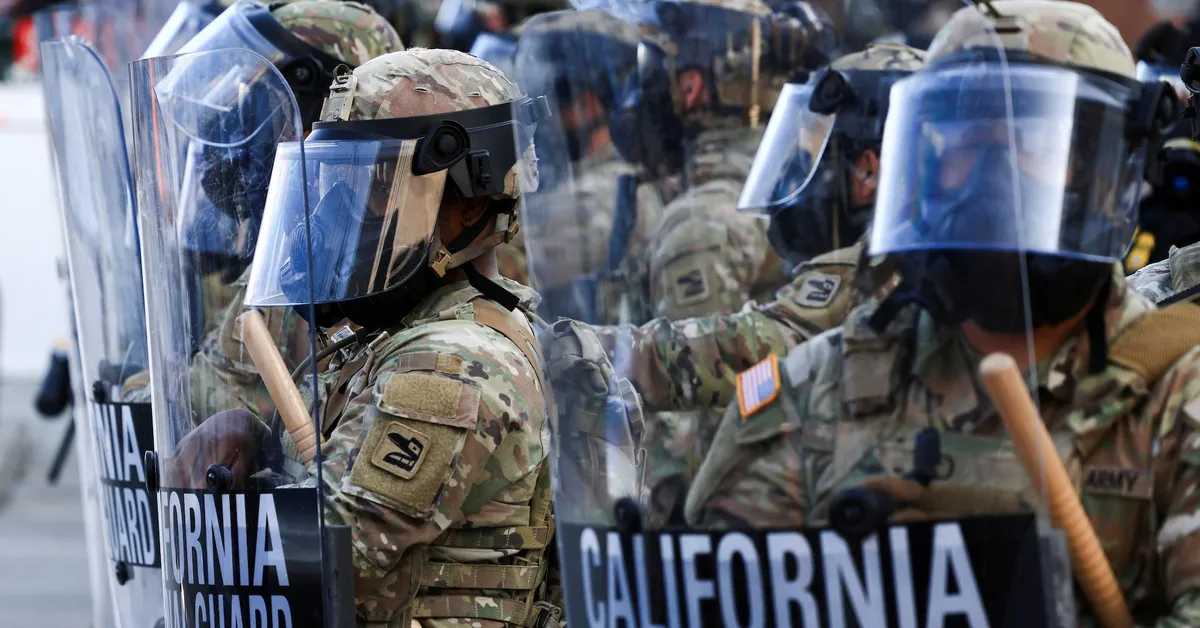
On September 2, 2023, a federal judge issued a significant ruling that blocked U.S. President Donald Trump's administration from utilizing the military to combat crime in California. This legal decision comes as Trump has threatened to deploy troops to more cities across the United States, including Chicago, amidst rising tensions regarding crime and immigration policies.
U.S. District Judge Charles Breyer, based in San Francisco, concluded that the Trump administration had willfully violated the Posse Comitatus Act. This federal law restricts the use of military forces for domestic law enforcement, highlighting a clear boundary between military and civilian responsibilities. The administration's actions included deploying over 4,000 National Guard members and 700 active-duty U.S. Marines to Los Angeles in June, aimed at controlling crowds and supporting federal agents during immigration and drug enforcement operations.
This ruling represents a setback for Trump's efforts to extend the military's role within U.S. borders. Critics have raised concerns that such an expansion of executive authority could lead to heightened tensions between military personnel and civilians. Judge Breyer has temporarily suspended his ruling until September 12, allowing the Trump administration time to consider an appeal.
At a recent news conference, Trump defended the Los Angeles troop deployment, stating it was necessary to restore order. He expressed intentions to send military forces to other cities, categorizing Chicago and Baltimore as "hellholes" in need of intervention. "We have the right to do it because I have an obligation to protect this country," Trump asserted.
While the injunction specifically applies to military actions in California, Judge Breyer’s comments regarding Trump’s plans to send troops to other cities underscore the necessity of the ruling to prevent further violations of the Posse Comitatus Act. Trump has claimed that the military presence was required to safeguard federal agents during immigration enforcement actions, especially following protests triggered by large-scale immigration raids.
Lawyers representing the Trump administration argued that the U.S. Constitution permits the president to deploy troops to protect federal personnel and property, presenting this as an exception to the Posse Comitatus Act. Judge Breyer acknowledged the necessity of safeguarding federal workers but cautioned against using this rationale to justify military deployments alongside federal agents. He stated, “to use this as a hook to send military troops alongside federal agents wherever they go proves too much and would frustrate the very purpose of the Posse Comitatus Act.”
The military deployment in Los Angeles faced widespread condemnation from Democrats, who accused Trump of using the military to suppress opposition to his stringent immigration policies. California Governor Gavin Newsom, who played a pivotal role in the legal challenge, expressed triumph over the ruling, asserting that it provided much-needed accountability against Trump’s "illegal militarization" of American cities.
Currently, approximately 300 National Guard members remain stationed in Los Angeles, despite protests having diminished. The Trump administration has extended their deployment through November. In a court filing, California officials argued that maintaining a military presence could interfere with the state’s elections, potentially intimidating voters and suppressing participation. Governor Newsom criticized the timing of the troop extension, suggesting it was a deliberate tactic to intimidate Californians into compliance.
Although Breyer's ruling does not legally bind other judges, it sets a precedent that may influence how courts interpret the Posse Comitatus Act in future cases. Legal experts, including Brenner Fissell, a law professor, believe this ruling could have a significant impact on similar challenges in other jurisdictions, emphasizing the necessity for judges to articulate their reasoning if they choose to diverge from this ruling.
The Trump administration has also deployed the National Guard in Washington, D.C., where the president holds considerable authority. As this legal battle unfolds, the implications for military involvement in domestic law enforcement continue to draw national attention.